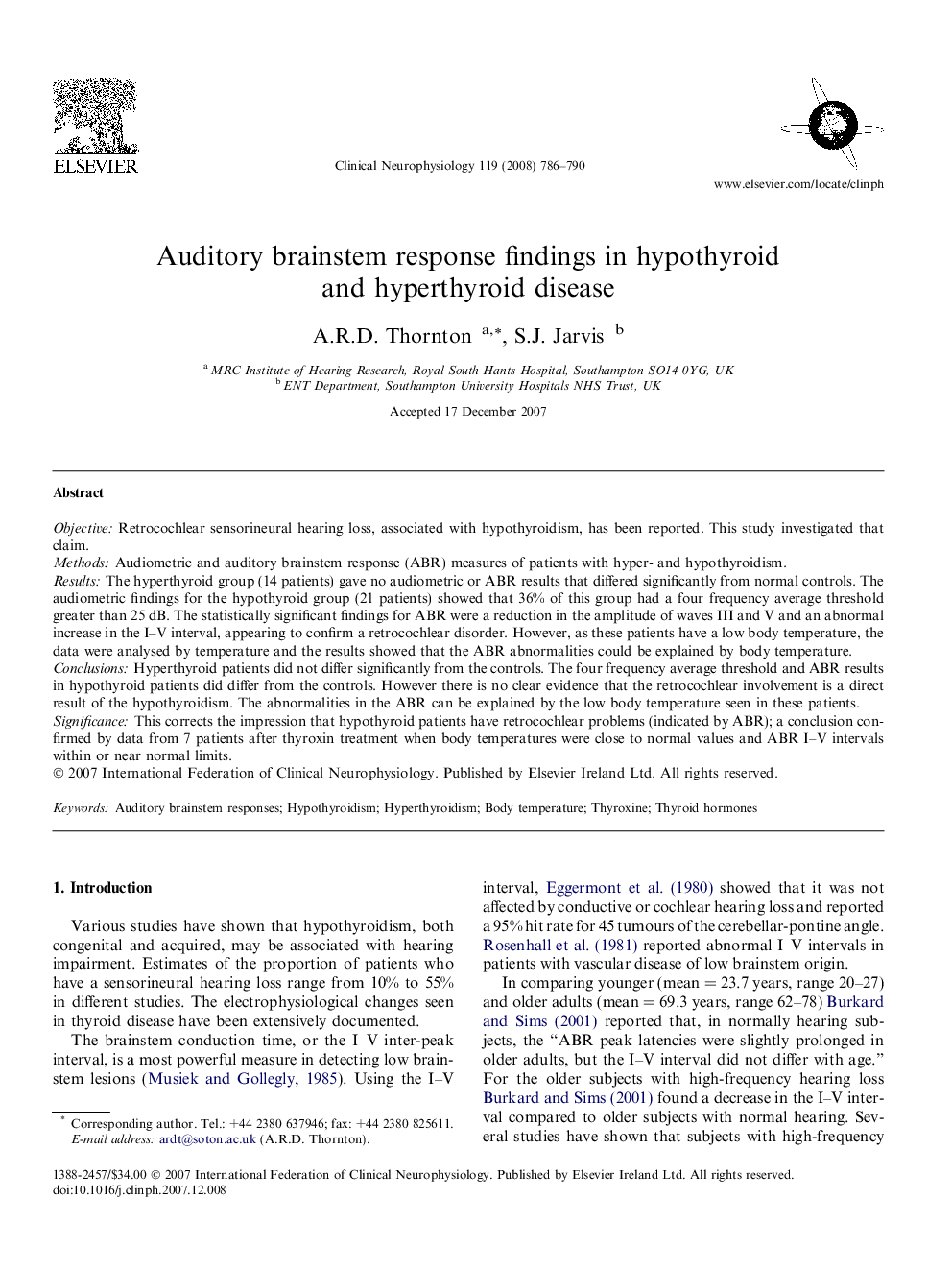| Article ID | Journal | Published Year | Pages | File Type |
|---|---|---|---|---|
| 3046491 | Clinical Neurophysiology | 2008 | 5 Pages |
ObjectiveRetrocochlear sensorineural hearing loss, associated with hypothyroidism, has been reported. This study investigated that claim.MethodsAudiometric and auditory brainstem response (ABR) measures of patients with hyper- and hypothyroidism.ResultsThe hyperthyroid group (14 patients) gave no audiometric or ABR results that differed significantly from normal controls. The audiometric findings for the hypothyroid group (21 patients) showed that 36% of this group had a four frequency average threshold greater than 25 dB. The statistically significant findings for ABR were a reduction in the amplitude of waves III and V and an abnormal increase in the I–V interval, appearing to confirm a retrocochlear disorder. However, as these patients have a low body temperature, the data were analysed by temperature and the results showed that the ABR abnormalities could be explained by body temperature.ConclusionsHyperthyroid patients did not differ significantly from the controls. The four frequency average threshold and ABR results in hypothyroid patients did differ from the controls. However there is no clear evidence that the retrocochlear involvement is a direct result of the hypothyroidism. The abnormalities in the ABR can be explained by the low body temperature seen in these patients.SignificanceThis corrects the impression that hypothyroid patients have retrocochlear problems (indicated by ABR); a conclusion confirmed by data from 7 patients after thyroxin treatment when body temperatures were close to normal values and ABR I–V intervals within or near normal limits.
